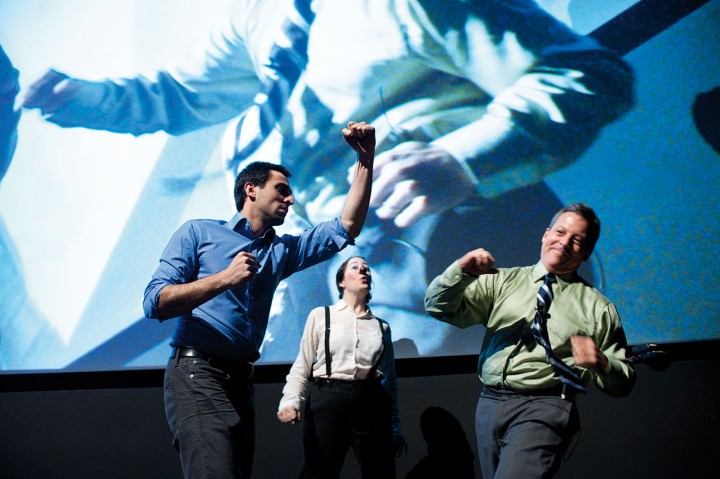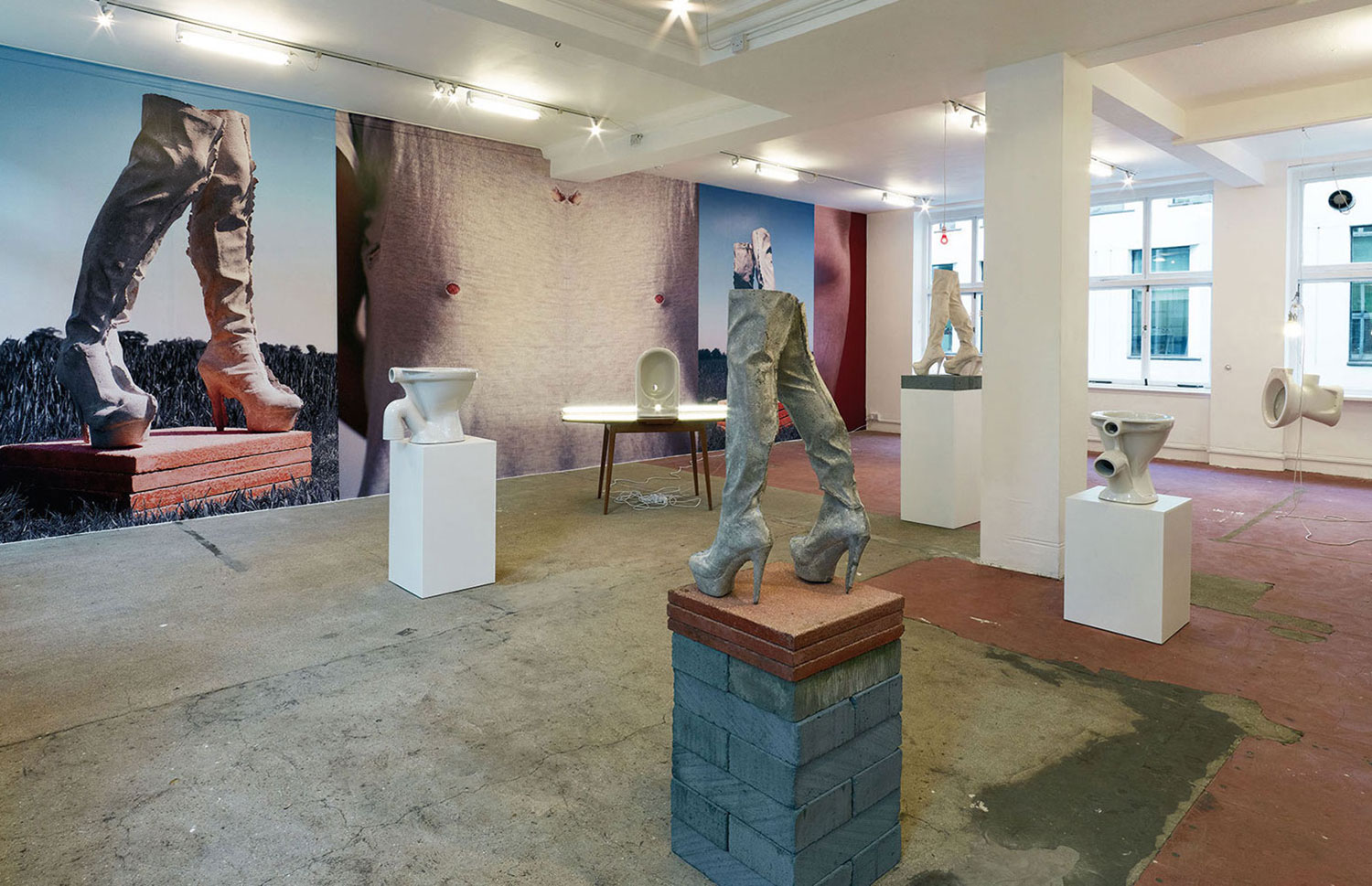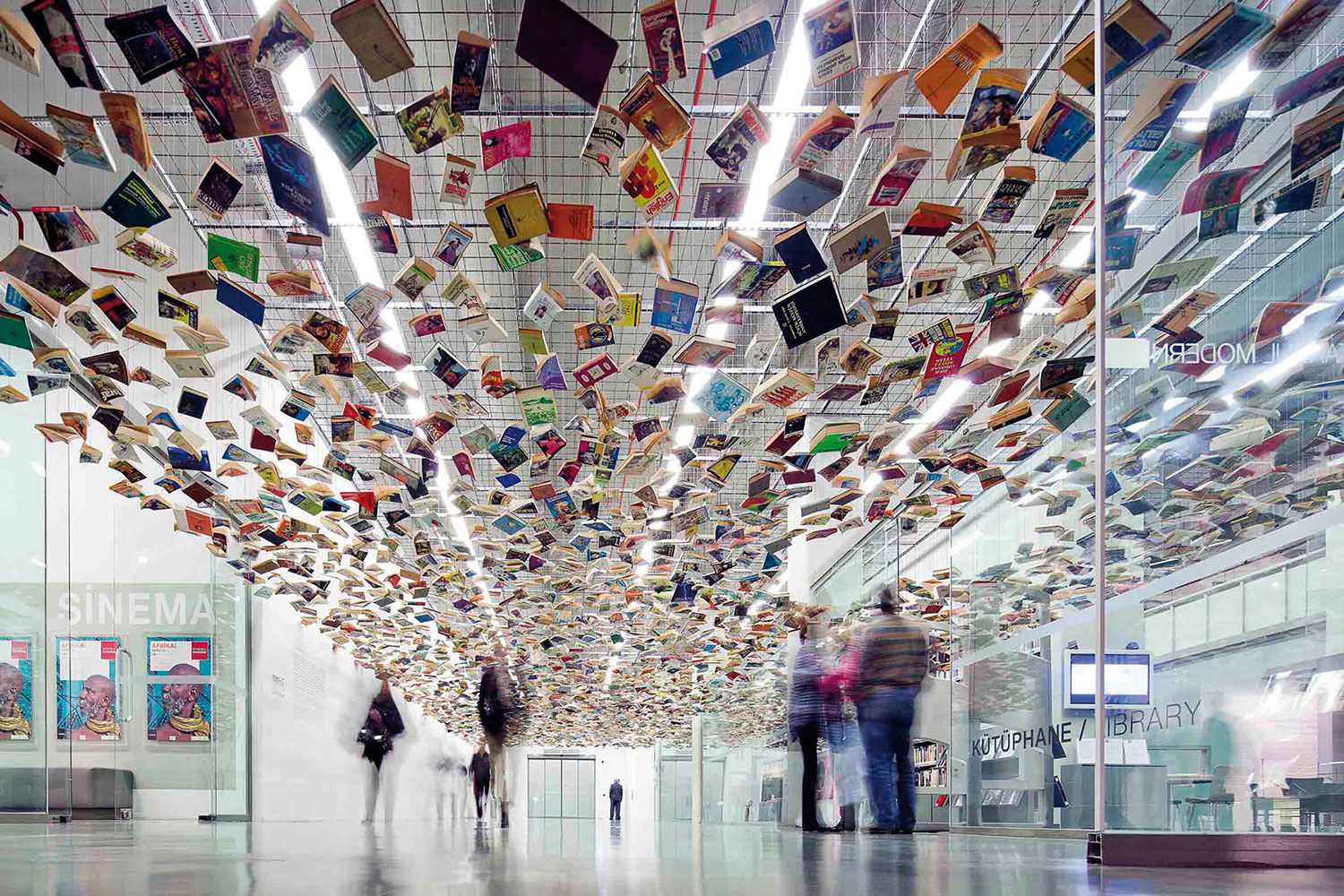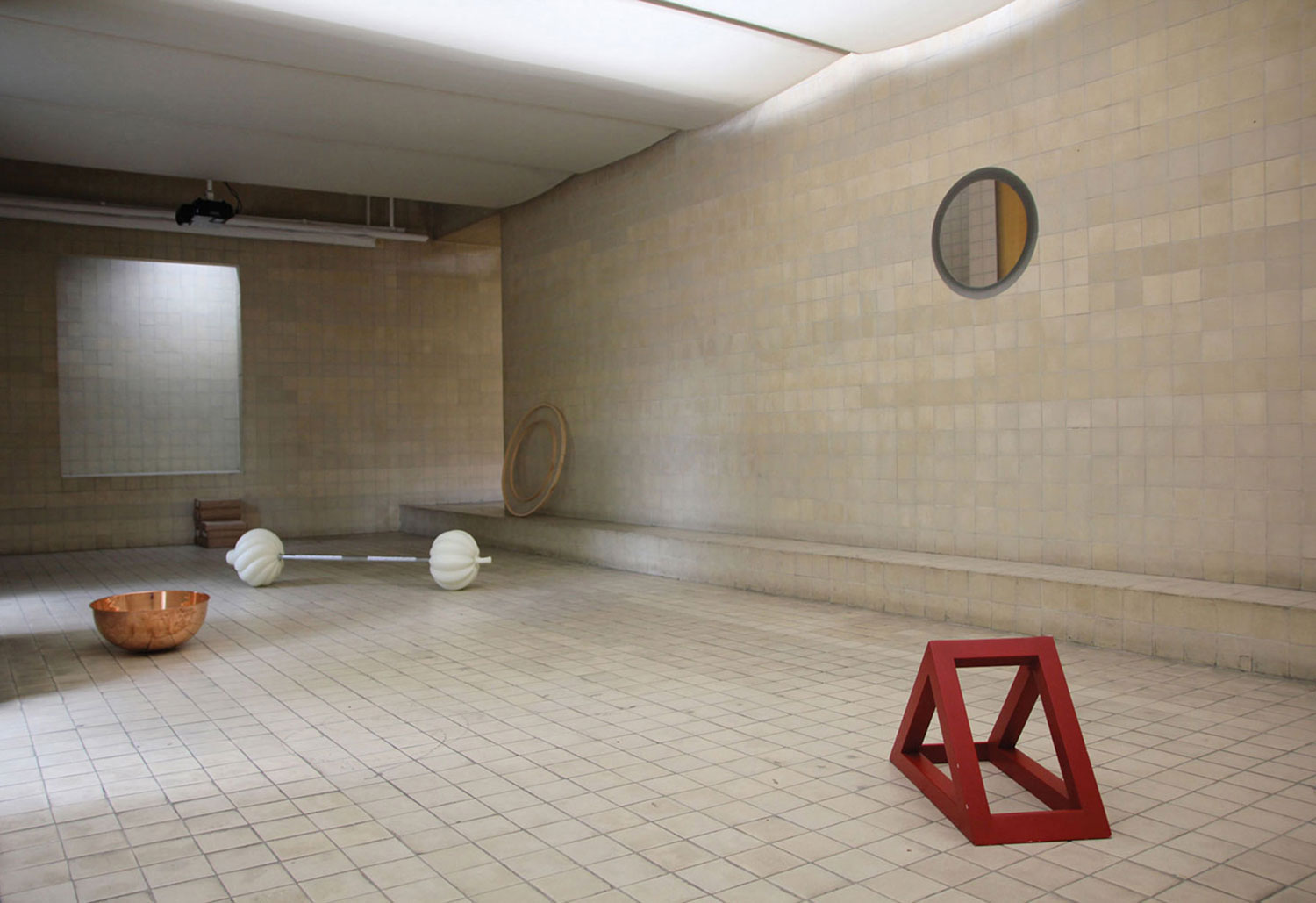
Patrick Steffen: You sometimes recast existing plays or re-enact existing dialogues or scenes. Should I understand from this that reality as you observe it is unsatisfying?
Liz Magic Laser: That’s probably accurate. I am dissatisfied with the relationship we, the public, have to mass media. This is precisely the relationship I would like see dismantled and re-assembled.
PS: “Empathy” seems to be a key word in your recent performances Living Newspaper (2012), The Digital Face (2012) and I Feel Your Pain (2011). Each questions how politicians provoke an emotional response in the audience.
LML: I’m interested in the moment when the Soviet and German avant-garde rejected realist theater’s effort to foster empathy in the audience in the 1920s. The avant-garde distrusted catharsis because it rendered viewers passive and unable to think critically. Today the very techniques of Stanislavski’s realist theater that the historical avant-garde was combating are now being used to train our politicians and business leaders. The same performance methods used to conjure audience empathy are being applied in tandem with market research to engineer public opinion. In my work I am trying to reckon with the fact that our awareness does not break the spell a performance can have on us.
PS: There is a common element between politicians and performers.
LML: The art of persuasion is the basic activity of both politician and performer. I became interested in François Delsarte, who developed oratorical theories and exercises in the early 19th century. Delsarte’s work focused on declamation and became the basis for the melodramatic acting in silent film. I see the techniques used by the actor to convince the audience and those used by the politician to convince the public as inextricably linked.
PS: How do you deal with the risk that your works, when showed in galleries or museums, could be perceived as pure documentation of your live performances?
LML: I am interested in throwing the very notion of “pure documentation” into question. I began as a photographer, and my work is often predicated on the way experience gets mediated by the presence of cameras. My work is intended to be received by a first audience during the initial live performances and then by a second audience who views the resulting video. I see the camera and camera operators as playing constitutive roles in the scenarios I create.
PS: 2012 is a presidential election year in the US. How does this event affect your process?
LML: I am addressing the election in several new projects that focus on the relationship between the news media and the public. One project will examine how the procedure of polling uses market research techniques and impacts voting itself. I’m interested in using the format of television news programs and the polling process itself as a means to explore and potentially affect the media’s relationship with the public.





